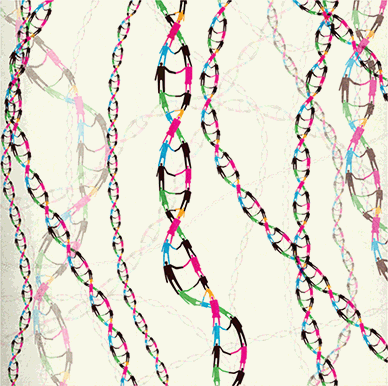Cancer is increasingly being viewed as an ecosystem, a community in which tumor cells cooperate with other tumor cells and host cells in their microenvironment. As conditions change, the ecosystem evolves and adapts to ensure the survival and growth of cancer. Our understanding of the intricate relationships in this ecosystem has led to revolutionary treatments, including immunotherapy. Successful treatment and prevention of cancer require an ecosystem, too—a coordinated unit of researchers, patients, health care professionals, health care systems, regulatory agencies, government, and industry. How can these partners work together as one interconnected community?watch full Alien: Covenant film online
Foremost, these stakeholders must prioritize cooperation in pursuit of a shared goal. This requires learning how to collaborate by building trust, increasing communication, and reducing biases based on self-interest. Respect for the expertise, contribution, value, and challenges faced by each partner is essential. And, each partner must ensure that the collaborative ecosystem is dynamic, with feedback, adaptation, and coordination toward a common goal.
Patients, in particular, deserve recognition for their vital role as the inspiration and source of data to drive science forward. In exchange, they deserve a strong voice and commitment from the health care industry to provide secure systems to share their clinical data. Patients also deserve to shape and participate in clinical trials in their communities and to have timely access to breakthrough medicines.
The pioneering efforts of the U.S. Food and Drug Administration (FDA) show that the regulatory system can be enhanced to expedite development of the most promising medicines. Since inception of the FDA’s Breakthrough Designation in 2013, 60 “breakthroughs,” half for cancer, have been approved with markedly shortened timelines. To keep pace with science, the FDA must be fully resourced to maintain its progressive agenda, including use of real-world data to accelerate drug development, support regulatory decisions, and enhance safety monitoring.
Biotech and pharmaceutical companies are partners, investors, catalysts, and disruptors in the fight against cancer, and they have at times been underappreciated for their risk-taking, investment, and expertise. Private enterprise has prioritized competition over collaboration, but it is time to seek opportunities for shared reward. For example, multiple industry partners are collaborating in the National Cancer Institute’s Molecular Analysis for Therapy Choice (MATCH) trial, which hopes to maximize clinical benefit of targeted therapies by assigning treatment to patients based on genetic abnormalities in their tumors.
Importantly, basic scientific research that unlocks the mysteries of cancer and discovers targets for therapy, early detection, and prevention is the core of a healthy ecosystem to tame the disease. As such, sustained increases to federal research budgets fuel continued progress. Greater multidisciplinary collaboration can speed both the creation and translation of new knowledge for the public good.
This is a time of opportunity. The Cancer Moonshot, headed by former U.S. Vice President Joe Biden, has reinvigorated national interest in the fight against cancer and highlighted the role of collaboration through networks, data sharing, and integration of diverse communities. Science and technology are at an inflection point with convergence—the integration of life sciences, physical sciences, mathematics, engineering, and information technology—poised to make great progress. Each member of the ecosystem has a necessary role to eradicate and prevent cancer. To realize this opportunity, stakeholders must work together, as a coordinated unit, with a singularity of purpose.







